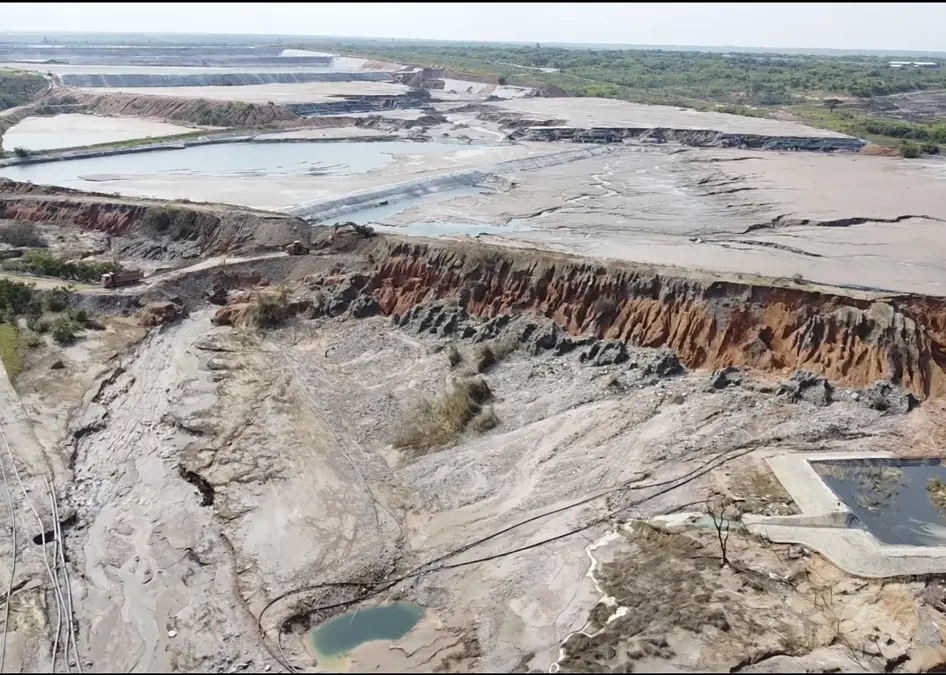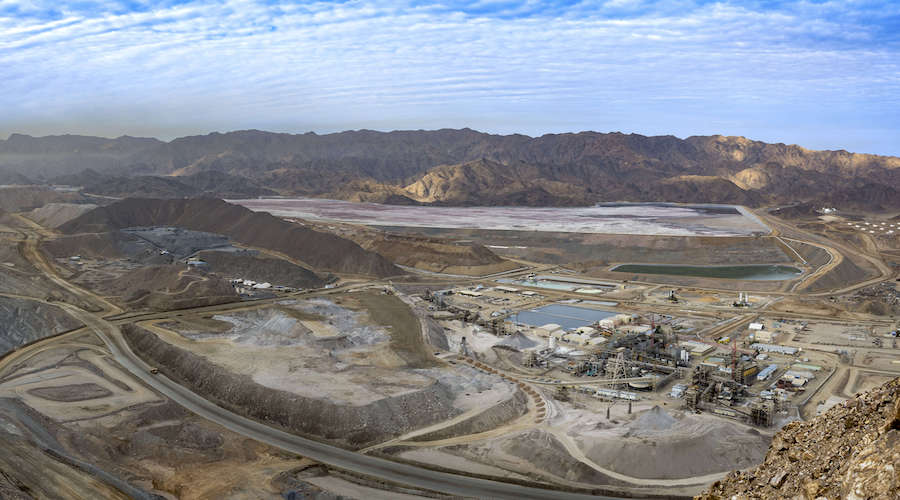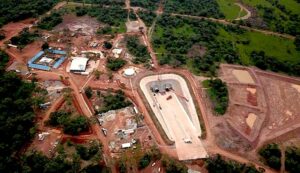Chinese firms bet on African gold as prices surge in the face of uncertainty
Observers say mining investments in South Africa and Ghana could help Beijing weather geopolitical instability and potential sanctions
As gold prices surge, Chinese investors are betting on Africa to secure gold supplies by stepping up mining activities in South Africa and Ghana, the continent’s two top exporters of the precious metal.
China-African Precious Metals Company (CAPM), a subsidiary of Shanghai Stock Exchange-listed Pengxin International Mining, has opened a newly refurbished gold processing plant in Orkney, South Africa.
The mine is located in South Africa’s Witwatersrand basin, home to one of the world’s largest known gold reserves.
The Chinese firm invested 200 million rand (US$11 million) in the resuscitation of the gold processing plant, a move that is expected to create nearly 4,000 jobs in South Africa. The plant is part of a 2 billion rand investment in the company’s Orkney mine operations in the country’s North West province.
“Our ongoing efforts to lure investments and address the scourge of unemployment and poverty is yielding desired results, particularly in economically depressed communities like this one,” the province’s premier, Kagiso Lazarus Mokgosi, said at the plant’s opening in mid-November.
A delegation of investors from central China’s Henan province will visit the North West province on Thursday to engage in various business opportunities in mining, tourism and agriculture, which are the province’s three main economic drivers, according to Mokgosi.
Although Orkney has huge gold reserves, mine closures in the past decade have hurt the town’s economic prospects. The facility’s opening marks the first operations at the Orkney gold mine in 14 years. The mine has seven shafts that were once part of Anglo American’s Vaal Reefs operation.
In 2011, Pengxin International Mining, through its subsidiary CAPM, acquired all assets of the financially troubled Orkney gold mine from Pamodzi Gold.
North West province is also known for its abundant reserves of uranium, platinum and diamonds. But its mining industry had fallen into ruin due to a lack of investment and a drop in commodity prices.
China is the top destination for South African gold, with US$8.86 billion worth of the metal sent to the Asian economic giant in 2022.
Meanwhile, in Ghana, Africa’s top gold producer, Chinese state-owned mining company Shandong Gold is investing millions of dollars in a large greenfield gold mine through its subsidiary Cardinal Namdini Gold Ltd.
Located in the Talensi district of Ghana’s Upper East region, the open-pit mine is expected to operate for 15 years, producing 5 million ounces of gold from 150 million tonnes of ore.
According to state-owned Ghana News Agency, the project, which is one of the largest gold mines in West Africa, is the first greenfield mine in the country since US-based Newmont Corporation extracted its first gold from a greenfield site in 2013.
In 2020, Shandong Gold, one of China’s biggest gold producers, acquired Ghana-focused miner Cardinal Resources Ltd for around US$221 million in cash.
In October, Chinese firm Zijin Mining Group reached a deal to acquire one of Ghana’s biggest gold mines for US$1 billion in cash. The agreement – the company’s seventh gold mine acquisition since 2020 – allows Zijin subsidiary Gold Source International Holdings to buy Newmont’s entire stake in the Akyem Gold Mine project.
Other Chinese companies with gold mining interests in Ghana include Shenzhen-listed Beijing Xiaocheng Technology Stock Co, which earlier this year disclosed that it had lost 12kg (26lbs) of gold worth US$900,000 in a robbery in the country.
The yellow metal is Ghana’s top export, earning the country US$9.53 billion in 2022, according to the Observatory of Economic Complexity.
China also has gold mining and processing interests in the Democratic Republic of the Congo, Mali, Zimbabwe, Nigeria, Guinea, Tanzania and Ivory Coast.
Lauren Johnston, a China-Africa specialist and associate professor at the University of Sydney’s China Studies Centre, said China’s move to acquire more gold assets and recent stockpiling might be due to the commodity’s value in uncertain times.
“It’s also relatively liquid across boundaries, including sanctions,” Johnston said.
“With the global monetary system also in flux, this is an added angle to the value of holding gold in present times,” she said, adding that the metal’s intrinsic value, unaffected by geopolitical pressures compared to fiat currencies, could also be a reason.
Gold has extended gains this year to above US$2,600 per ounce, up from about US$2000 at the end of last year, as investors sought safety in the metal amid geopolitical uncertainty that has intensified with the escalating conflicts in Ukraine and the Middle East.
China went on a gold-buying spree in 2022 and 2023, which is thought to have driven prices up. In 2023, the People’s Bank of China, the country’s central bank, bolstered its gold reserves by about a third.
However, the trend has tapered. As of October, Beijing had refrained from buying more gold for its reserves for the sixth consecutive month.
Bitcoin’s march towards historic US$100,000 level stalls amid crypto investor caution
According to the World Gold Council, China’s official gold holdings remained unchanged for the seventh consecutive month in October at 2,264 tonnes (72.8 million ounces).
Gold’s share of China’s official foreign exchange reserves climbed to 5.7 per cent as the price of the commodity continued to surge, the council said in a report earlier this month.
Charlie Robertson, head of macro strategy at asset management firm FIM Partners, said China had good reason to diversify its foreign exchange reserves away from US Treasuries towards gold and other assets since Washington led the freeze on Russian assets in 2022.
“Buying gold mines in Africa is a smart way to secure a flow of gold for China’s [foreign exchange] reserves,” Robertson said.
He said that if Beijing were to attack Taiwan later this decade, it might want to maximise its gold reserves to protect itself from US sanctions.
Sub-Saharan Africa geoeconomic analyst Aly-Khan Satchu said it was evident that China had been wresting control of the precious metals market away from the West and institutions such as the New York-based Commodity Exchange (Comex).
Satchu said this was a major geoeconomic development.
“China is evidently operating across the upstream and the downstream, and Africa represents an opportunity to lock in upstream assets,” he said.
Share this content:














